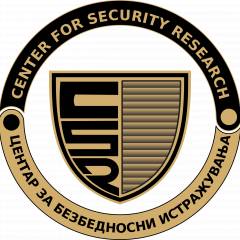
While war has long been viewed as a competition between adversaries, peace has been defined by absence of such conflict. But what happens when the line between war and peace is blurred and hardly visible? Countries today face a number of actors who use a wide range of political, informational, military, and economic measures to influence, coerce, intimidate, or undermine its interests or those of its friends and allies. To accomplish military goals without putting one’s nation, civilians, or even opposition troops at mortal risk is certainly the ideal manner in which to win a war.
This is one of the reasons why psychological warfare is the preferred form of warfare by both state and non-state actors today. Psychological warfare is the planned tactical use of propaganda, threats, and other non-combat techniques during wars, threats of war, or periods of geopolitical unrest to mislead, intimidate, demoralize, or otherwise influence the thinking or behavior of an enemy. All the global and regional powers have their unique brand of psychological warfare, but also terrorist groups like the Islamic State—employ political warfare to varying degrees. Modern psychological warfare, however, extends beyond proxy and covert uses of force. The US employs it’s multifaceted soft-power approach globally, Russia employs insignia-less “little green men,” China uses “civilian” fishing vessels to assert its claims in the South China Sea. Iran employs its shadowy Quds Force, the covert arm, to control a network of proxies throughout Iraq, Syria and the Middle East.
In warfare, each dimension of psychological warfare and every strategy are to be used together in an integrated and comprehensive manner. Just as a traditional military will not rely exclusively on fighter jets to accomplish their mission, psychological operations must rely on more than a single strategy to accomplish their goals. Every strategy has strengths and weaknesses, and proper planning must account for these weaknesses by utilizing combinations of functions simultaneously or consecutively. Psychological operations are intended to accomplish certain goals by managing the ideas, emotions, and behaviors of the opponent, as a less harmful and less risky alternative to traditional forms of warfare. The ability to program the opponent for the purposes of controlling his actions to accomplish military goals without necessarily putting oneself in harmful situations is the heart of psychological warfare. Like any programming language, the language of the mind is complicated, based on human instinct, environmental conditioning, complex and conflicting incentives, exposure to information, and so much more. Although psychological operations have seen a formal presence in many world militaries since the early twentieth century, the military potential for the application of psychology has not reached its limit, because a great number of ethical issues began to arise. It is generally seen as immoral to intentionally harm another person using psychological methods. Generally speaking, it is considered unethical to shoot another person, yet the shooting of other people tends to be a defining trait of warfare. But, it is important to consider that it is a far simpler matter to treat emotional or behavioral distortions in the brain than it is to treat a bullet in the brain. In pursuing the military applications for psychology, a nation not only greatly strengthens its military through highly effective means of accomplishing its goals, while reducing the amount of risk to which it exposes its soldiers, but it also reduces the amount of actual violence that must be used in accomplishing those goals.
The information arena is also an increasingly important battleground. Thanks to relatively low barriers to entry to social media, even non-state actors can wage sophisticated information campaigns to recruit and propagandize. Varying forms of economic pressure—bribes, blockades, or highly conditioned aid packages—are long-standing tools of statecraft that are now used for psychological warfare. Both state and non-state actors continually innovate in search of means of wreaking havoc far from their home bases, without firing a shot. Using such mechanisms of psychological warfare, these actors can advance their territorial interests without provoking a full-fledged military response by their opponents, and always shield themselves with the cloak of deniability.
It is safe to say that security leaders and strategists must consider that psychological effects will matter as much as the kinetic ones in the hybrid dimensions of modern warfare. Today every nation must build methods to develop the skill sets needed for the new dimensions of conflict, not only in their militaries and other government agencies, but across their societies and within the community of their security partners.


